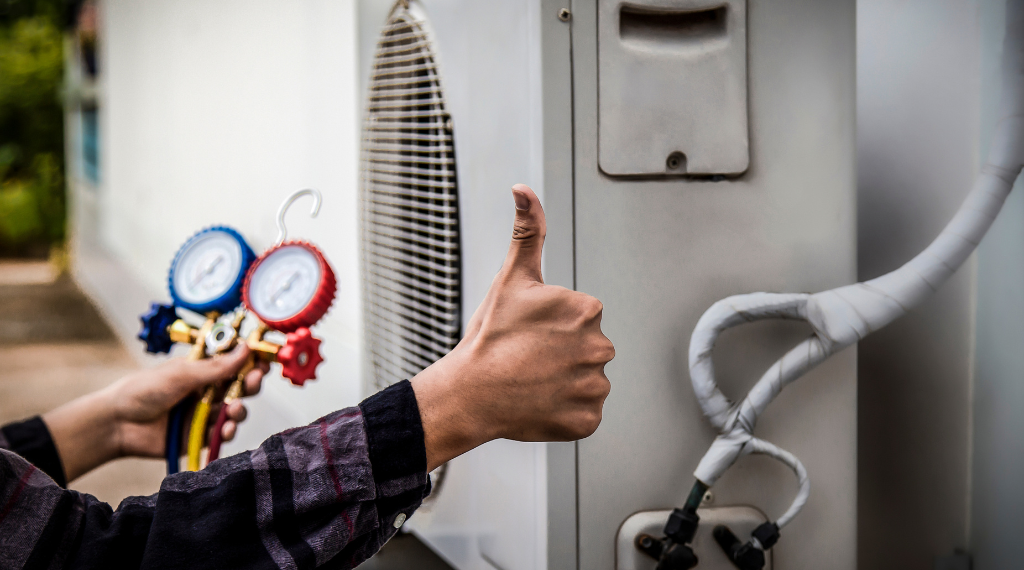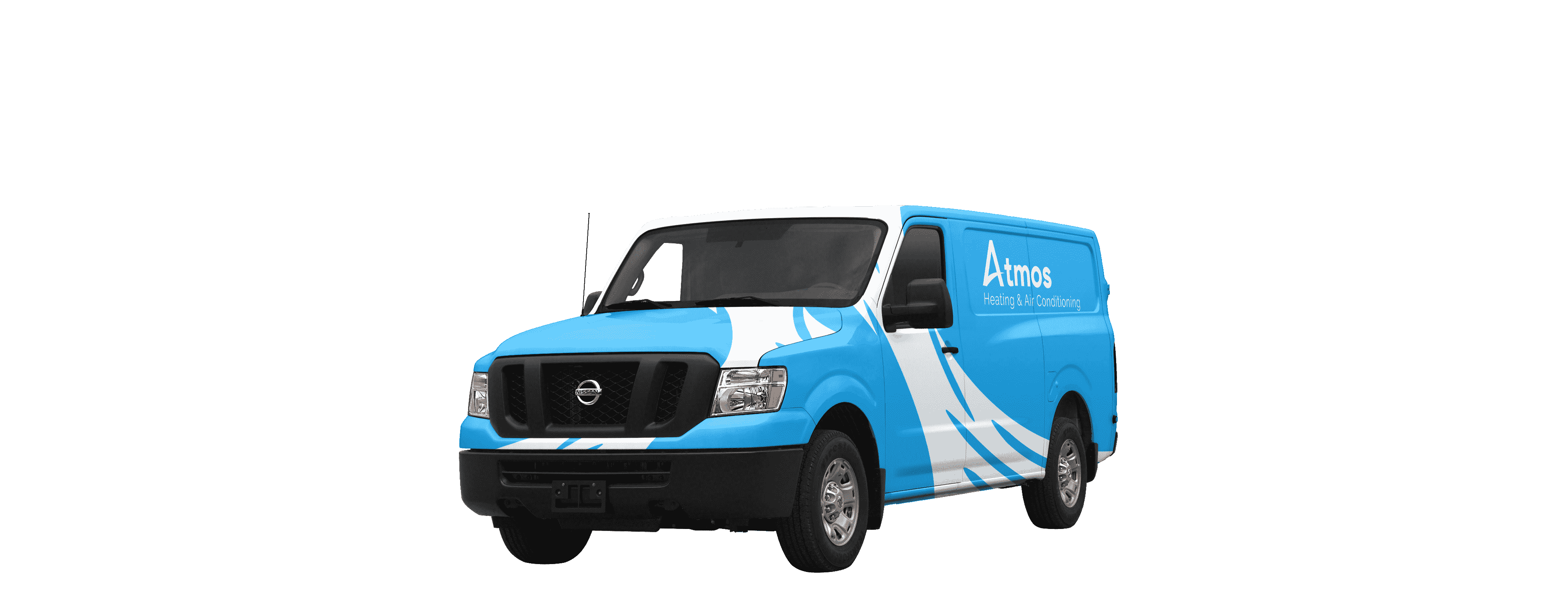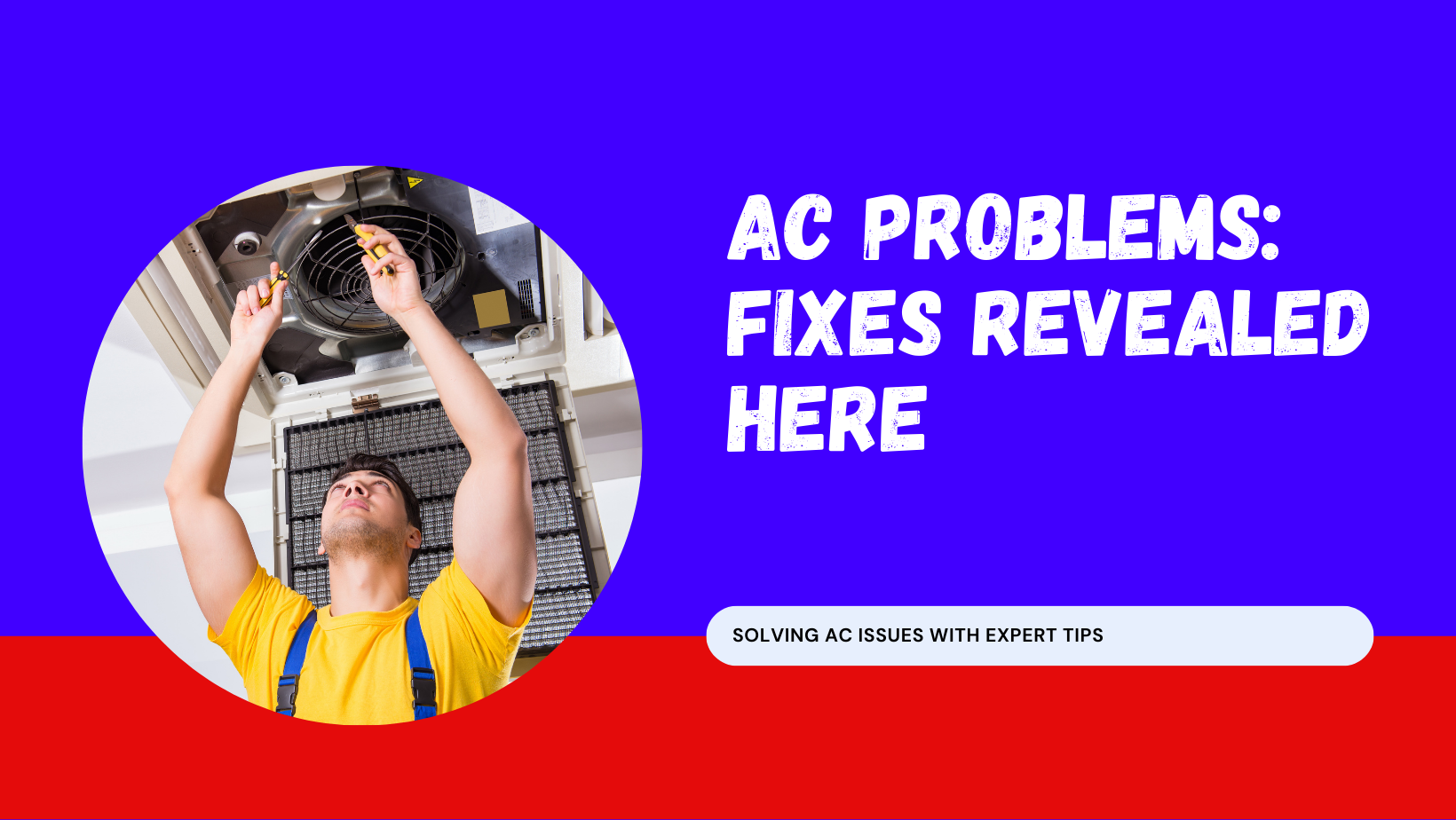Air conditioning has become an essential part of modern living, providing comfort and relief from the heat, especially during the hot summer months. However, like any mechanical system, air conditioners are susceptible to various AC problems that can affect their performance and efficiency. In this comprehensive article, we will explore the most common AC problems and provide practical solutions to help you maintain your unit and keep it running smoothly.
1. Air Conditioner Not Turning On
One of the most frustrating issues with an air conditioner is when it fails to turn on. This problem can be caused by several factors, including air conditioning smart thermostat issues, tripped circuit breakers, electrical problems, capacitor failure, and blower belt issues.
Thermostat Issues
If your thermostat is not set correctly or has dead batteries, it can prevent your air conditioner from turning on. Check the thermostat settings to ensure it is set to “cool” and that the temperature is set lower than the current room temperature. If the thermostat has batteries, replace them with fresh ones.
Tripped Circuit Breaker
A tripped circuit breaker can also cause your air conditioner to not turn on. Check your home’s electrical panel and look for a tripped breaker. If you find one, reset it by switching it off and then back on. If the breaker trips again, there may be an electrical issue that requires professional attention.
Electrical Problems
Faulty wiring or loose connections can prevent your air conditioner from turning on. Check the wiring for any visible signs of damage or loose connections. If you are not comfortable working with electrical components, it is best to call a professional HVAC technician for assistance.
Capacitor Failure
The capacitor is responsible for providing the initial burst of energy needed to start the compressor and fan motors. If the capacitor fails, the air conditioner may not turn on. You can test the capacitor with a multimeter to determine if it needs to be replaced.
Blower Belt Issues
If your air conditioner has a blower belt, it can become worn or loose over time, preventing the blower from turning on. Check the belt for signs of wear or looseness and replace it if necessary.
2. Air Conditioner Not Blowing Cold Air

Another common problem with air conditioners is when they are not blowing cold air. This issue can be caused by a dirty air filter, refrigerant leak, frozen evaporator coil, compressor failure, or thermostat malfunctioning.
Dirty Air Filter
A dirty air filter can restrict airflow, causing the air conditioner to blow warm air. Check the filter and replace it if it is dirty or clogged.
Refrigerant Leak
A refrigerant leak can cause the air conditioner to blow warm air. Refrigerant is responsible for absorbing heat from the indoor air and transferring it outside. If there is a leak, the refrigerant levels will be low, and the air conditioner will not be able to cool the air effectively.
Frozen Evaporator Coil
A frozen evaporator coil can also cause the air conditioner to blow warm air. The evaporator coil is responsible for absorbing heat from the indoor air. If the coil freezes, it can restrict airflow and prevent the air conditioner from cooling the air effectively.
Compressor Failure
The compressor is the heart of the air conditioning system. If it fails, the air conditioner will not be able to cool the air effectively. Compressor failure can be caused by a variety of factors, including low refrigerant levels, electrical problems, or wear and tear.
Thermostat Malfunctioning
If the thermostat is not functioning properly, it can cause the air conditioner to blow warm air. Check the thermostat settings to ensure it is set to “cool” and that the temperature is set lower than the current room temperature. If the thermostat is not working properly, it may need to be replaced.
3. Air Conditioner Freezing Up
Another common problem with air conditioners is when they freeze up. This issue can be caused by insufficient airflow, low outside temperature, low refrigerant levels, blower motor problems, or a stuck contactor.
Insufficient Airflow
Insufficient airflow can cause the air conditioner to freeze up. This can be caused by a dirty air filter, blocked vents, or a problem with the blower motor. Check the air filter and replace it if it is dirty or clogged. Make sure that all vents are open and unobstructed.
Low Outside Temperature
If the outside temperature is below 60°F, the air conditioner may freeze up. This is because the refrigerant is not absorbing enough heat from the indoor air to prevent the evaporator coil from freezing.
Low Refrigerant Levels
Low refrigerant levels can also cause the air conditioner to freeze up. If there is a refrigerant leak, the refrigerant levels will be low, and the evaporator coil may freeze.
Blower Motor AC Problems
If the blower motor is not functioning properly, it can cause the air conditioner to freeze up. The blower motor is responsible for circulating the air through the system. If it is not working properly, it can cause the air to stagnate and the evaporator coil to freeze.
Stuck Contactor
The contactor is responsible for turning the compressor and fan motors on and off. If the contactor is stuck in the “on” position, it can cause the air conditioner to run continuously and the evaporator coil to freeze.
4. Refrigerant Leaks

Refrigerant leaks are a common problem with air conditioners. Refrigerant is responsible for absorbing heat from the indoor air and transferring it outside. If there is a leak, the refrigerant levels will be low, and the air conditioner will not be able to cool the air effectively.
Causes of Refrigerant Leaks
Refrigerant leaks can be caused by a variety of factors, including corrosion, improper installation, or age. Over time, the copper tubing that carries the refrigerant can corrode, causing leaks. Improper installation can also lead to leaks, as can age and wear and tear.
Impact of Refrigerant Leaks
Refrigerant leaks can have a significant impact on the efficiency and performance of your air conditioner. As the refrigerant levels drop, the air conditioner will have to work harder to cool the air, which can lead to higher energy bills and increased wear and tear on the system.
Detecting Refrigerant Leaks
Refrigerant leaks can be difficult to detect, but there are some signs to look for. If you hear a hissing sound coming from the air conditioner, it may be a sign of a refrigerant leak. You may also notice ice buildup on the evaporator coil or the copper tubing that carries the refrigerant.
Importance of Professional Repair
Refrigerant leaks should always be repaired by a professional HVAC technician. Attempting to repair a refrigerant leak yourself can be dangerous, as refrigerant is a hazardous material. A professional technician will be able to safely repair the leak and recharge the system with the proper amount of refrigerant.
5. Unusual Noises
Unusual noises coming from your air conditioner can be a sign of a problem. Some common noises and their causes include:
| Hissing | A hissing sound may indicate a refrigerant leak. |
| Clicking | A clicking sound may be caused by a relay or thermostat issue. |
| Thumping/Rattling | Thumping or rattling sounds may be caused by loose parts. |
| Screeching | A screeching sound may indicate a problem with the motor bearings. |
| Buzzing | A buzzing sound may be caused by an electrical problem. |
If you hear any unusual noises coming from your air conditioner, it is important to have it inspected by a professional HVAC technician to determine the cause and prevent further damage to the system.
6. Water Leaks
Water leaks are another common problem with air conditioners. Water leaks can be caused by a blocked or clogged drain line, improper installation, a cracked or damaged condensate pan, or excessive humidity.
Blocked or Clogged Drain Line
The drain line is responsible for carrying condensation away from the air conditioner. If the drain line becomes blocked or clogged, it can cause water to back up and leak from the unit.
Improper Installation
If the air conditioner is not installed level, it can cause water to leak from the unit. A professional HVAC technician should always install the air conditioner to ensure that it is level and properly draining.
Cracked or Damaged Condensate Pan
The condensate pan is responsible for collecting the condensation that drips from the evaporator coil. If the pan becomes cracked or damaged, it can cause water to leak from the unit.
Excessive Humidity
In some cases, excessive humidity can cause the air conditioner to produce more condensation than the drain line can handle, leading to water leaks.
If you notice water leaking from your air conditioner, it is important to have it inspected by a professional HVAC technician to determine the cause and prevent further damage to the system.
7. Thermostat Issues
The thermostat is responsible for controlling the temperature in your home and turning the air conditioner on and off. If the thermostat is not functioning properly, it can cause AC problems.
Incorrect Settings or Programming
If the thermostat is not set correctly or has incorrect programming, it can cause the air conditioner to not turn on or not cool the air effectively.
Sensor Problems
If the thermostat’s temperature sensor is not functioning properly, it can cause the thermostat to read the wrong temperature, leading to AC problems.
Compatibility Issues with Older Units
Some older air conditioners may not be compatible with newer, more advanced thermostats. This can cause compatibility issues and problems with the air conditioner.
Calibration Problems in Dial Thermostats
Dial thermostats can become miscalibrated over time, causing them to read the wrong temperature. This can lead to AC problems
If you suspect that your thermostat is causing problems with your air conditioner, it is important to have it inspected by a professional HVAC technician to determine the cause and make any necessary repairs or replacements.
8. Electrical Problems
Electrical problems can cause a variety of issues with your air conditioner, including not turning on, not cooling effectively, or tripping the circuit breaker.
Tripped Circuit Breaker or Blown Fuse
If the circuit breaker that powers your air conditioner trips or the fuse blows, it can prevent the unit from turning on. Check the circuit breaker or fuse and reset or replace it if necessary.
Faulty Wiring or Loose Connections
Faulty wiring or loose connections can cause electrical problems that can lead to issues with your air conditioner. Check the wiring for any visible signs of damage or loose connections.
Capacitor Failure
The capacitor is responsible for providing the initial burst of energy needed to start the compressor and fan motors. If the capacitor fails, it can cause electrical problems that can lead to issues with your air conditioner.
Contactor Issues
The contactor is responsible for turning the compressor and fan motors on and off. If the contactor is not functioning properly, it can cause electrical problems that can lead to issues with your air conditioner.
If you suspect that electrical problems are causing issues with your air conditioner, it is important to have it inspected by a professional HVAC technician to determine the cause and make any necessary repairs.
9. Ductwork Problems
The ductwork in your home is responsible for distributing the cooled air from your air conditioner throughout your home. If there are problems with the ductwork, it can lead to issues with your air conditioner.
Leaks or Holes in Ducts
Leaks or holes in the ductwork can cause air to escape before it reaches the rooms in your home. This can lead to inefficient cooling and higher energy bills.
Improper Sizing or Installation
If the ductwork is not properly sized or installed, it can cause airflow problems that can lead to issues with your air conditioner.
Blocked or Restricted Airflow
If the ductwork is blocked or restricted, it can cause airflow problems that can lead to issues with your air conditioner.
Insulation Issues
If the ductwork is not properly insulated, it can cause heat transfer that can lead to inefficient cooling and higher energy bills.
If you suspect that ductwork problems are causing issues with your air conditioner, it is important to have it inspected by a professional HVAC technician to determine the cause and make any necessary repairs or replacements.
10. Maintenance and Prevention
Regular maintenance is key to preventing many of the common problems that can occur with air conditioners. By performing regular air conditioning maintenance tasks and having your air conditioner serviced by a professional HVAC technician, you can help ensure that your unit runs efficiently and effectively for years to come.
DIY Maintenance Tasks
There are several maintenance tasks that you can perform yourself to help keep your air conditioner running smoothly, including:
- Changing the air filter regularly
- Cleaning the outdoor unit and removing any debris or vegetation
- Checking the thermostat batteries and settings
- Inspecting the condensate drain line for clogs or blockages
Professional Tune-ups and Inspections
In addition to performing regular maintenance tasks yourself, it is important to have your air conditioner serviced by a professional HVAC technician on a regular basis. During a tune-up, the technician will:
- Check the refrigerant levels and look for leaks
- Clean the evaporator and condenser coils
- Inspect the electrical components and connections
- Lubricate moving parts
- Check the airflow and ductwork for any issues
Upgrading to More Efficient Systems
If your air conditioner is more than 10 years old or is not performing as efficiently as it once did, it may be time to consider upgrading to a more efficient system. Newer air conditioners are much more energy-efficient than older models, which can save you money on your energy bills and help reduce your carbon footprint.
Master Air Conditioning Maintenance

Air conditioning problems can be frustrating and costly, but by being proactive and addressing issues promptly, you can help ensure that your air conditioner runs efficiently and effectively for years to come. Remember to perform regular maintenance tasks, have your unit serviced by a professional HVAC technician on a regular basis, and consider upgrading to a more efficient system if your current unit is not performing as well as it should be.
By following the tips and advice outlined in this article, you can help prevent many of the common problems that can occur with air conditioners and keep your home cool and comfortable all summer long.




